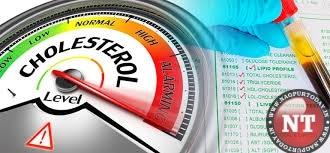
High cholesterol levels harm your well-being, especially your cardiac health. So regularly checking your cholesterol levels by getting lipid profile tests done is essential.
It is important to monitor cholesterol levels as having too much cholesterol in the blood can lead to a buildup in the blood vessels, increasing the risk of stroke, heart problems, and the hardening or clogging of the arteries known as atherosclerosis. A certain amount of cholesterol is essential for proper bodily function, but having too much of it can be harmful. Keeping an eye on existing cholesterol levels can be done by getting regular lipid profile tests, though the frequency can be suggested by a healthcare professional depending on the individual’s risk factors. Maintaining a healthy lifestyle by eating a balanced diet, exercising regularly, abstaining from smoking, and avoiding excessive alcohol intake can also help keep cholesterol levels in check.
What is a Lipid Profile Test?
A lipid profile test is a blood test that measures the levels of different types of cholesterol and fats in the blood, including total cholesterol, low-density lipoprotein (LDL) (also known as “bad” cholesterol), high-density lipoprotein (HDL) (also known as “good” cholesterol), and triglycerides. High levels of LDL and triglycerides and low levels of HDL can increase the risk of heart disease, stroke, and other health problems associated with the hardening or clogging of the arteries, known as atherosclerosis.
The lipid profile test determines a person’s risk of developing these conditions and monitors the effectiveness of treatments for high cholesterol, such as lifestyle changes, medications, or both.
What Does a Lipid Profile Test Include?
A lipid profile test consists of a series of tests measuring different lipids in the bloodstream. Some of the tests commonly included in a complete lipid profile include:
Total Cholesterol
This test measures the sum of your bloodstream’s cholesterol content, which includes a combination of low-density lipoprotein (LDL) cholesterol, high-density lipoprotein (HDL) cholesterol, and very low-density lipoprotein (VLDL) cholesterol.
HDL Cholesterol
This is also known as ‘good’ cholesterol. HDL cholesterol helps prevent the buildup of cholesterol in your blood vessels, keeping various health problems at bay.
LDL Cholesterol
This is also known as ‘bad’ cholesterol. LDL cholesterol can accumulate fatty deposits in arteries, leading to reduced blood flow and several severe health concerns.
VLDL Cholesterol
It measures the amount of VLDL cholesterol, usually in low amounts, when your blood sample is taken on an empty stomach as it comes from recently consumed food. If VLDL levels in your blood are high even in a fasting sample, it could indicate a lipid metabolism problem.
Triglycerides
Triglycerides are lipids in your blood that can cause several issues, like pancreatic inflammation and cardiovascular disease.
While these are the most common measurements included in most lipid profile tests, in some cases, the test may also have measurements of other lipids, such as very-low-density lipoprotein (VLDL) cholesterol or lipoprotein(a), to get a more comprehensive picture of the patient’s lipid profile.
Take the lipid profile test offered by Apollo 24|7 – in addition to these five tests, it includes two other tests – non-HDL cholesterol and cholesterol-HDL ratio.
Who Needs a Lipid Profile Test?
Despite not exhibiting any specific symptoms or signs, high cholesterol levels can cause plenty of damage to your body. Getting lipid profile tests done regularly is vital to ensure good heart health. It’s imperative to get this test performed for those who:
Smoke
Are obese
Have diabetes
Eat an unhealthy diet
Lead a sedentary lifestyle
Have a family history of heart problems or high cholesterol
When to Get a Lipid Profile Test Done?
The United States National Heart, Lung, and Blood Institute (NHLBI) recommend that one’s first cholesterol test be done when he or she is between 9 to 11 years. It is advisable to get this test performed every 1-2 years in 45- to 65-year-old men and 55- to 65-year-old women. Every individual in the age group of 20- 65 years must get themselves screened every five years. Additionally, those aged 65 and above should get it done every year. More frequent testing might be recommended if
the results of your initial test are not accurate
you take medicines for cholesterol reduction, or
you are more susceptible to or suffer from coronary artery disease.
Get the lipid profile test by Apollo to get accurate results within 6 hours!














